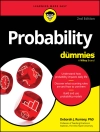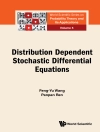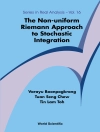Classical probability theory provides information about random walks after a fixed number of steps. For applications, however, it is more natural to consider random walks evaluated after a random number of steps. Examples are sequential analysis, queuing theory, storage and inventory theory, insurance risk theory, reliability theory, and the theory of contours. Stopped Random Walks: Limit Theorems and Applications shows how this theory can be used to prove limit theorems for renewal counting processes, first passage time processes, and certain two-dimenstional random walks, and to how these results are useful in various applications.
This second edition offers updated content and an outlook on further results, extensions and generalizations. A new chapter examines nonlinear renewal processes in order to present the analagous theory for perturbed random walks, modeled as a random walk plus ‘noise.’
Tabla de materias
Preface.- Notations and Symbols.- Introduction.- Limit Theorems for Stopped Random Walks.- Renewal Processes and Random Walks.- Renewal Theory for Random Walks with Positive Drift.- Generalizations and Extensions.- Functional Limit Theorems.- Perturbed Random Walks.- Appendix A: Some Facts from Probability Theory.- Appendix B: Some Facts about Regularly Varying Functions.- Bibliography.- Index.
Sobre el autor
Dr. Allan Gut is a professor of mathematical statistics at Uppsala University in Sweden. He has published many numerous articles, and has authored and co-authored six books, four of which were published by Springer. Three of those books, including the first edition of this book, have sold out, and Probability: A Graduate Course, published in 2005, is selling well.












